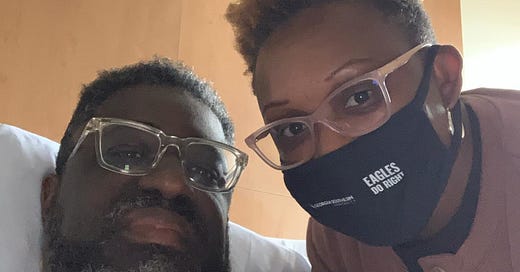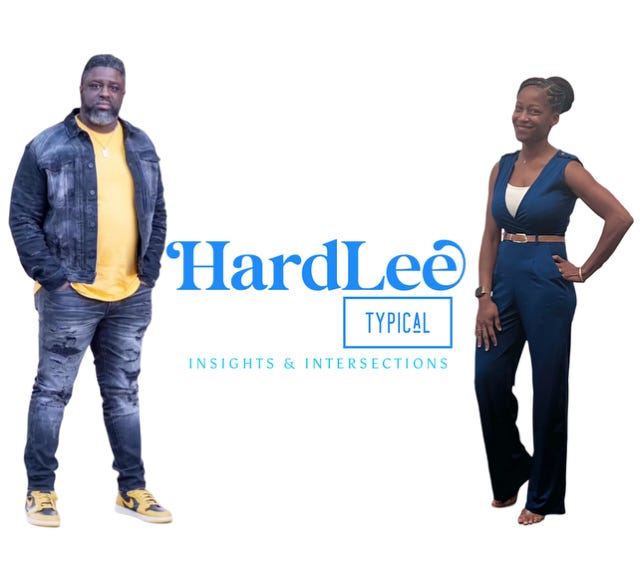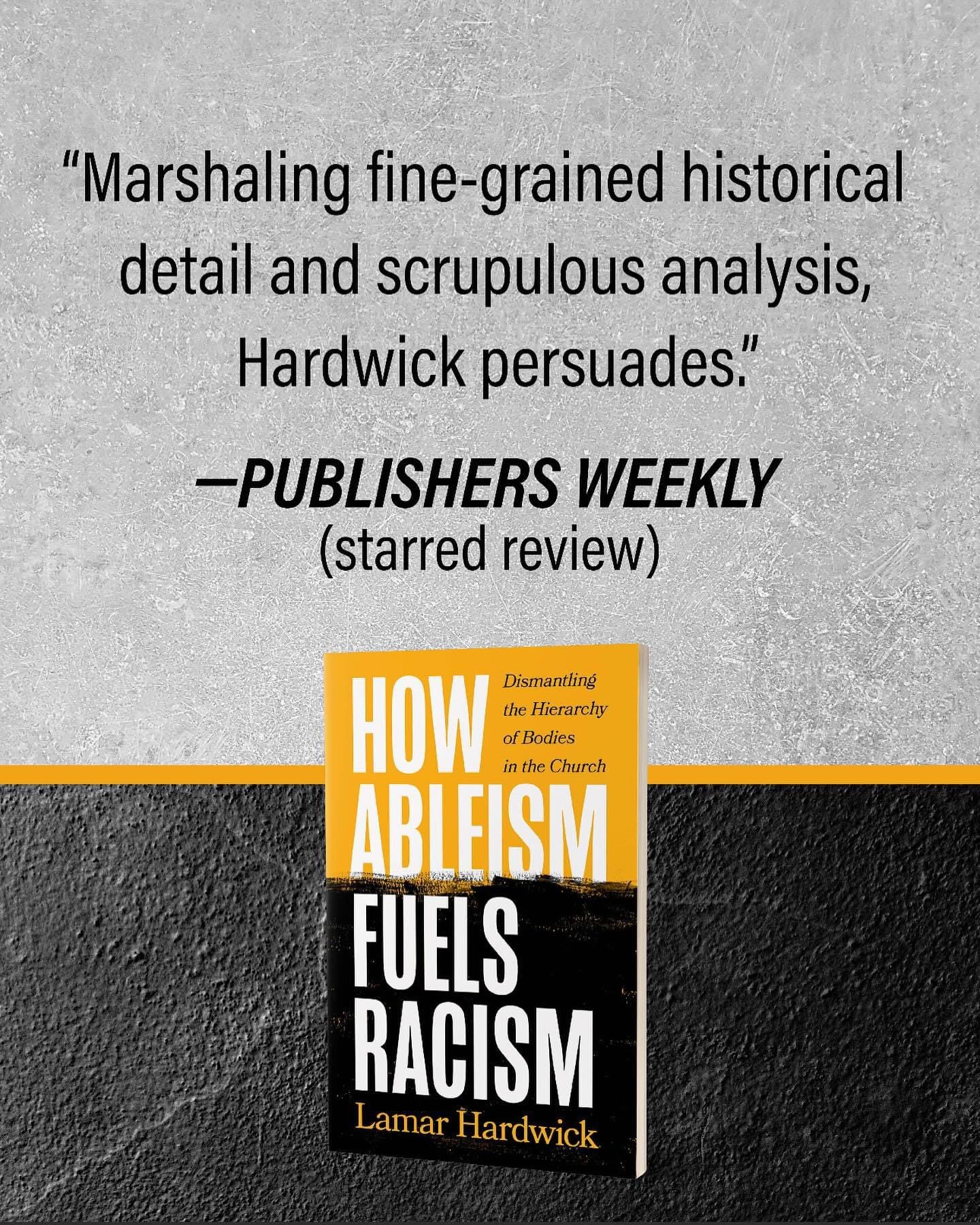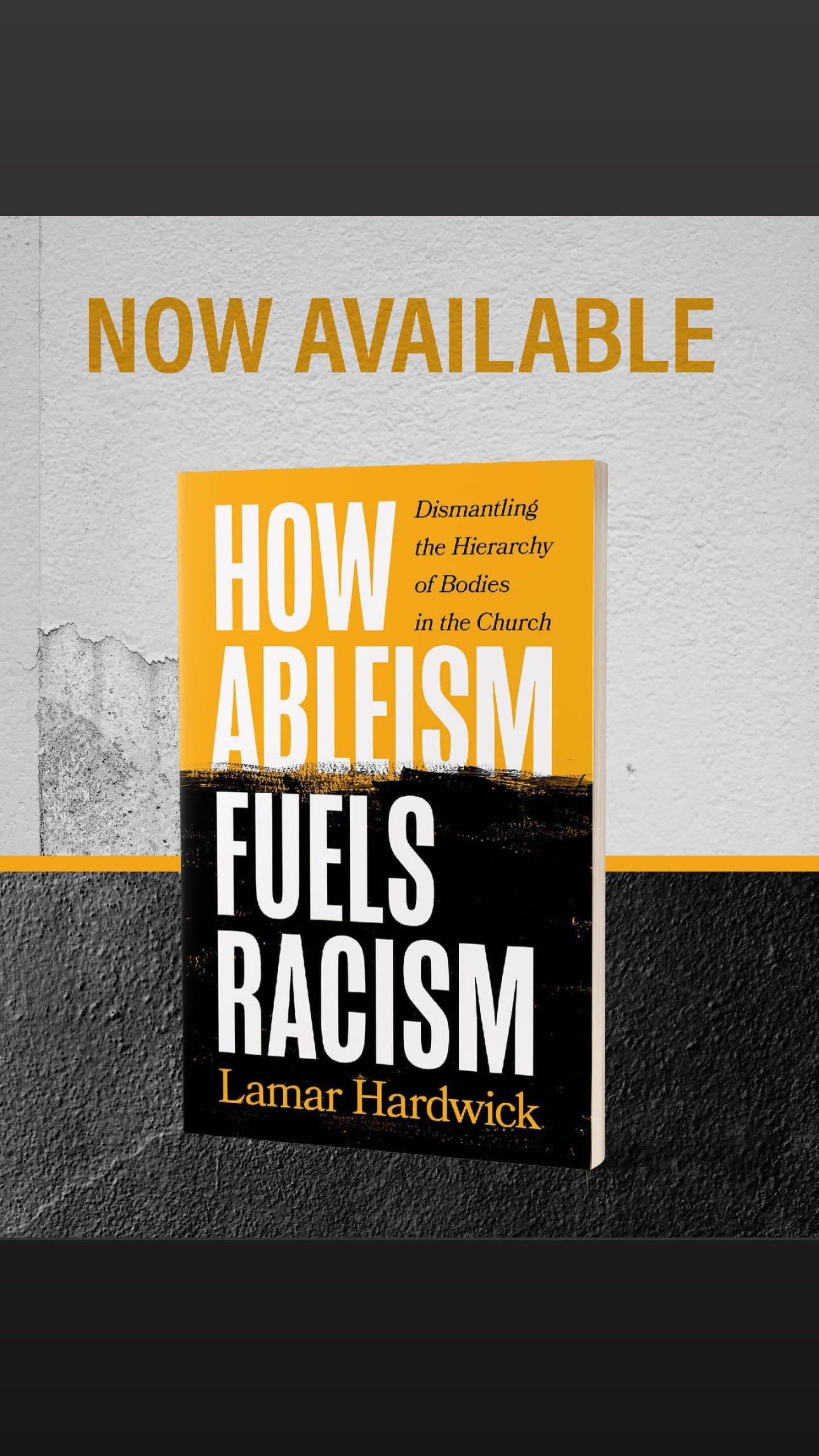I certainly wanted to know God’s role in my cancer diagnosis in 2020. To be honest most of the process leading up to the diagnosis is still a blur. It’s almost as though my brain wanted to protect me from being retraumatized by the news. While I don’t remember much, I do remember waking up from anesthesia and seeing my wife on my left side and the doctor on my right side. “I’m ninety percent sure this is cancer,” she said.
I can remember thinking “ninety percent is extremely high.” I looked over at my wife. The last time I saw this look on her face was when her father died suddenly in 2010 in Malawi. I can still remember getting that phone call from her and meeting her at the front door after finding out he had died in the hospital. I never wanted to see that look on her face again, but now I’m staring at that look as I lay in the recovery room. Her eyes were glossed over. I’m sure you’ve seen the look before. The look is somewhere between tears and terror. Ready to cry but trying desperately not to project her pain on to me. If the news about having cancer didn’t break me, it was her eyes that did it. More than my own fear of death was my fear of what may be forced onto my wife and children if I didn’t survive. Getting cancer certainly was not my choice, but having my wife and children dragged into a dilemma that they didn’t deserve was a weight that I wasn’t prepared to handle.
This moment in my own journey caused me to observe something about the faith deconstruction movement that I had never noticed before. Most often its wrapped up in layers and layers of questions and critiques about Christianity, but when you peel back those layers it exposes the heart of the push toward deconstruction. I only started to notice it when my own life took a turn for the worse and I began to have similar critiques about the faith that had been handed to me in my youth. It all goes back to understanding God’s hand in suffering, but it almost always leads directly to a conflict between God’s supposed will for our lives and our will or desires for our own life. What do we do, or better yet, what should we believe about God’s hand in our lives when it so often not only directly contradicts our desires, but puts our very lives and the lives around us in jeopardy? If in fact God’s hand is responsible for placing us in the proverbial valley of dry bones, are we obligated to accept it without question? Does being a committed follower of Jesus mean that we ultimately live by a code of unconditional and unquestioned obedience? Does being faithful to God and the Christian faith mean that we always agree with how God’s hand operates in our lives?
The truth is, I felt a lot like Ezekiel on the road home from my colonoscopy. As my wife pulled up to the hospital exit to load me into the car, I could see her wiping the reminder of her tears from her face. When the nurse opened the car door and helped me into the vehicle, I realized that my wife was wrapping up a phone call to my pastoral mentor, Bishop Sharma Lewis and she had obviously just shared the news with her that I had cancer. Like Ezekiel, I felt like I had been placed in a valley of death, not by my hand, not by my choice, but by a hand that I had been taught, held the entire universe. A hand that orchestrated life. A hand that held power and authority. A hand that was attached to the very God of the universe, whom I had agreed to surrender to as a teenager some thirty-years earlier. I can remember feeling like it was so much easier to assume that my role was to always agree with how God chose to use his hands when it seemed to be working out for my benefit. But now, this is not what I wanted. I didn’t ask for this, and I certainly didn’t agree with being plucked up out of my desired path in life and placed in a valley of dry and decaying bones. I’m not saying that I have always been unconditionally obedient to God’s supposed plan for my life. There are many moments and several occasions when I wasn’t sure about what to do and if God’s hand was guiding me in a certain direction. But this is the moment when I came to understand the feelings of outrage and utter disappointment in feeling as though God’s hand had purposely placed me in the valley of death. Not only did I vehemently disagree with this decision, but I was also furious! I didn’t deserve this and neither did my family. It was probably the first time in my adult Christian life where I had an innate desire to publicly and rather aggressively disagree with God and his role in my suffering and possible death. If being a faithful follower of Jesus meant agreeing with the decision to dump me in a valley full of the stench of my own impending death, then I wanted no parts of that kind of relationship with God. I can remember thinking on the ride home, “God if this is how your hand is working in my life right now, then you need to know that I completely disagree. I’m not feeling this, and I want no part of it.”
While this may have been a revelatory moment for me, I suspect that scores of people who have lived with disability, chronic illness, or cancer diagnosis like me have long felt this way about the faith handed to them in their youth that taught them that being a good committed follower of Jesus meant constantly aligning yourself with God’s mysterious use of his hands to guide your life to and through places that ultimately contradict what you want for your own life. People who live with disability, physical limitations, and those who have been marginalized by society and by the toxic misuse of the Bible and Christian theology have long been the first to pave the way to faith deconstruction because much of the faith that was handed to them in their youth was a faith that led them to believe that those who lived their unique embodied experience were already on the outside of God’s covenant with humanity. They suffered because God’s hand was either divinely judging them or had already abandoned them. People with disabilities, chronic illness, and those on the margins didn’t feel like Ezekiel being placed in the valley of dry bones, they have long felt like they were the dead and decaying bones left for dead in the valley only to be continually scorched by the unbearable heat from the sun that stood watch over their lifeless valueless bodies.
Somehow the unbridled and often unbiblical pursuit of personal piety, prosperity, and personal property lead to the preaching and practice of a Westernized version of Christianity that in many areas fell short of patterning itself after the ministry of Jesus. The results and the residue of that unrestrained retelling of the gospel led to some of the most toxic belief systems that systematically created multiple valleys filled with the ghastly bones of those who fell victim of those toxic beliefs. All across the nation graveyards filled with victims of unchecked power and privilege began popping up, making the land of the free and the home of the brave a memorial sight for the those whom had been martyred for the cause of building something greater and grander than a nation full of people surrendering to the teachings of an itinerant Jewish rabbi and carpenter who championed peace, love, grace, and justice for those pushed onto the margins by an both an oppressive Roman government and an overwhelming toxic religious belief about what God was really like.
Except one of the primary ways that Jesus opens the world to what God is really like is by using stories called parables and in those short stories Jesus often uses the people that society doesn’t like to teach the world about what God is really like. Jesus had a way of teaching that exposed the idea that in order to grow in faith, understanding, and most importantly love for God, we are required to listen carefully to the voices that have been most harmed by our refusal to love them. This is an important idea to anchor our conversation about faith deconstruction because Jesus sets the tone for traversing the path toward better understanding God’s hand or God’s role in suffering by intentionally pointing us to the people who have long suffered at the hands of those who have purported to know with absolute certainty what God’s hand does and who it’s done to.
In calling our eyes to and ears to gaze upon and empathize with the marginalized, the disabled, the chronically ill, and those who have been marginalized by bad beliefs about God and God’s handy work, Jesus invites us to engage in the true work of deconstruction, which often begins with decentralizing our own narrative and admitting that our narrative is not always normative nor does it need to be in order to have an evolving understanding of God’s hand in affairs of the human experience.
Check out my new podcast available on all major platforms!







